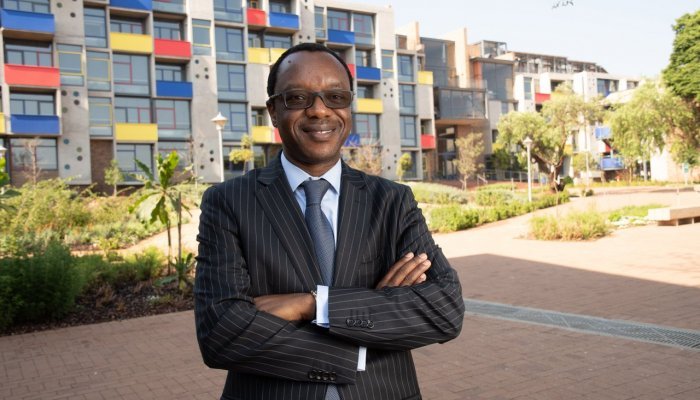Impact of Covid-19
Several sectors have obviously been affected. The biggest casualties are people who have lost their jobs. Companies and businesses have lost their revenue. The lockdowns have resulted in reduced economic activity, which has impacted growth and the economy’s ability to sustain livelihoods. The South African economy has lost some of the momentum that President Cyril Ramaphosa’s government was trying to build towards regenerating its growth targets.
The lockdown imposed during the early stages of the pandemic disrupted supply chains. Due to the risk-adjusted strategies deployed at the time, alternating through various alert levels of restrictions meant that certain industries were rendered non-operational. Those which were permitted to operate were allowed to do so with sub-optimal hours. The restrictions impacted businesses that depended on our usual routines of commuting to work, procuring goods and services, and leisure activities.
It is the government’s responsibility to create a climate that enables businesses to operate with minimal restrictions. On the other hand, it is the private sector’s obligation to regenerate and rethink how it operates in a world characterised by the digitalisation of every aspect of life (including the economy). Even before the pandemic, both the private and public sectors were slow to modernise the economy by putting it through a transition that upheld the demands of the digitalised world that we find ourselves in.
The role of the university in rebuilding the economy
Our role is to educate and train a new generation of graduates who will be better equipped to meet the demands of the new economy by allowing them to rethink the future of work. Labourers (and trade unions) are aware that the economy is going through a transition, which can translate into massive job losses due to a shortage of skills needed for the digitalised economy we are anticipating. All these components of society need to work together to reimagine and manage a less painful transition with long-term, sustainable benefits. Overall, private sector banks and investors need to prioritise the financing of emerging entrepreneurs and businesses. It is crucial that the sector innovates its financing models and avoids using business financing instruments that replicate the shortfalls and red tapes of the old economy.
As the University of Pretoria (UP), our role is to gather foresight about the skills that are critical for the future of work. The university aims to conduct further research that will be available to inform policies that are necessary to manage the new economy. Addressing challenges like connectivity and the cost of data is central to ensuring a smooth transition to the digitalised economy.
We are committed to preparing society and the economy through using evidence-based research to position them in a digital environment. UP is in the final stages of building a Centre for the Study of the Future of Work, which will not only focus on academic-oriented research but also on research that can inform businesses, government and the university itself on what kind of curriculum we should pursue.
This research will inform how we train the next generation of students. As we look into the future, we identify our proactive role in reimagining the future of work, contributing research and education for the new generation.
Preparing for the future of work
It is imperative for us to consider curriculum reforms. It is time for us to create closer working platforms with both government and business. We need to re-evaluate the funding of universities, research, and which academic programmes are subsidised. Fast-tracking the approval of academic programmes is an urgent necessity.
Due to the rate at which the world around us is evolving, it has become important to create a culture of unlearning and re-learning in our institution. To do this, tertiary education must become a life-long pursuit instead of a transition that students only make after secondary school. Employed graduates need to return to the institution as and when required by the changing world of work.
Our approach to research is evolving. We are pursuing transdisciplinary research, which is not modelled on the separation between academic disciplines. Transdisciplinary research addresses societal problems in their complexity. This approach values the input of the public and private sectors, and members of society in co-creating questions for challenge-led research and knowledge creation.
Building leaders that shape the country’s economy
UP has prioritised social engagement by making its resources available to its Community Engagement initiative. The initiative is not separate from but embedded in the university’s academic activities. Our teaching approach is to shape our graduates to be socially aware and sensitive to the needs of others to positively impact their environment. We are the only African university that belongs to the University Social Responsiveness Network. Our stance is that education must advance social engagement in a tangible and sustainable way, as this will be crucial for building the new (post-Covid-19) economy.
The South African economy has been negatively impacted not only by Covid-19. It is still reeling from the effect of major forces of disruption like the rapid advancement in technology, global forces, and unequal trade. The best way for the country to positively impact the continent is through collaboration with multilateral organisations that seek to resuscitate and reposition the continent’s economy. A growing economy for individual African states and the continent as a whole will be important for addressing unemployment, poverty and inequality. This can be achieved by working with the African Union's economic regions, like the SADC, in our part of the continent.
Research programmes spearheaded by UP
UP has prioritised collaborating with other African universities through multiple networks. As part of the African Research Universities Alliance (ARUA), we encourage teaming up to conduct research that is relevant to the continent (and each individual country). Through a collaboration with the University of Nairobi, the University of Ghana and the University of Leeds, UP launched ARUA’s Centre of Excellence in Sustainable Food Systems to facilitate a network of researchers tasked with finding solutions to food security and nutritional challenges facing the continent.
As the current co-president of the Australia-Africa University Network (AAUN), an initiative that fosters partnerships between various institutions, I advocate for the collaboration of academics and researchers to address issues that affect both continents. Some of the focus areas for this initiative include research around food security, water, energy, transport and various other factors affecting the performance of economies on both continents.
UP is also part of the Alliance for African Partnerships (AAP), which comprises the Michigan State University and nine other African universities (UP being the tenth).
The institution is well-positioned and prepared to feed the knowledge pipelines so that governments and businesses can construct evidence-based policies aimed at driving our countries and economies towards this newly-reimagined world that will be upon us post Covid-19.
Professor Tawana Kupe is the vice-chancellor and principal at the University of Pretoria. He is co-president of the Australia-Africa University Network. GIBS is part of the University of Pretoria.







